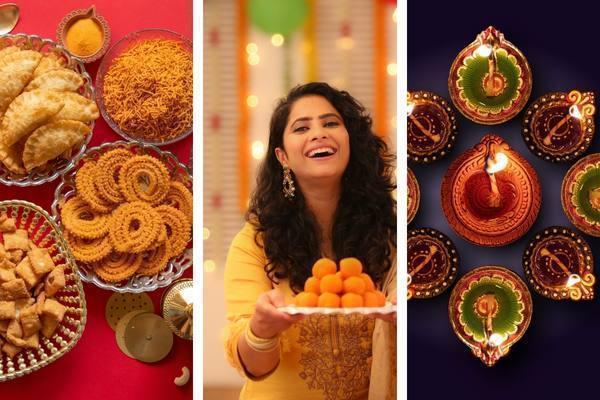
Diwali, also known as the festival of light, is a Hindu festival that symbolizes the triumph of light over darkness. Those not practicing Hinduism know this Hindu festival as the festival of lights, a celebration that marks the beginning of the Hindu New Year, celebrated in India, Fiji, Guyana, Mauritius, Singapore, Sri Lanka, Nepal, Suriname, Burma, Trinidad and Tobago, and Bangladesh and many more!
Are you interested in knowing what Diwali is and learning more details about this beautiful festival? Let's get started!
What does Diwali mean?
The name of the Hindu festival derives from the Sanskrit word Deepavali, which translates as a ‘row of lit lamps’. The spiritual significance of Diwali in Hinduism is that it represents the victory of light over darkness and the power of good over evil - the details of this festival root back to Hindu mythology.
That is the reason why the festival of lights is celebrated by lighting candles and oil lamps in homes, temples, and public places. The bright and joyous spirit of Diwali symbolizes the eradication of ignorance and negativity in our lives.
Although mainly associated with Hinduism, celebrating Diwali is also part of many other religious communities, such as Jains, Sikhs, and Buddhists. This shows how a tradition can inspire unity and respect among different communities.
Diwali is one of the most important festivals in Hinduism
Knowing what Diwali means, we can delve into its importance and the many legends surrounding this major Hindu festival. Its exact origin remains a topic of debate, with roots that date back thousands of years in India. The myths and legends vary considerably depending on the religious community.
It is believed that Diwali originated during the Vedic period, over 2,500 years ago, associated with a festival where the harvest was celebrated, thanking the gods for prosperity and abundance.
Moreover, many believe that this festival is related to the marriage between the goddess Lakshmi and the god Vishnu. Within Hinduism, it's associated with Lord Rama's victory over the demon Ravana and his triumphant return to Ayodhya.
When is Diwali celebrated?
The Hindu lunar calendar determines the festival date, which lasts five days. Usually, the sacred day of Hinduism occurs during the Hindu months of Asvina and Kartika, which typically coincide with October or November of the Gregorian calendar. Wondering when you can celebrate Diwali in 2023? This year, the Hindu festival begins on November 12th and extends for 5 days.
How is the Diwali festival celebrated?
This festival is quite the spectacle as it is mainly celebrated by lighting clay lamps, lanterns, and fireworks in neighborhoods. These lamps symbolize the inner light that protects each home from spiritual darkness. Prayers, feasts, plenty of sweets, family gatherings, and donations are also part of the traditions followed during the five-day festival.
Many businesses take the date as the first day of the new fiscal year. Most, if not all, banks, money transfer apps, and mobile wallets offer deals and discounts to enable people overseas to send money back home. The festival and the grandeur around it also attract thousands of tourists from all over the world, and many Indian businesses take the date as the first day of the new fiscal year.
Many banks, money transfer apps, and mobile wallets offer deals and discounts to enable people overseas to send money back home. Taking advantage of this influx of tourists over Diwali festivities, shops offer discounts to encourage spending, similar to Thanksgiving in the US.
Now that we know what Diwali is, let's look at some of the details that occur during the festival of lights:
- Day 1- Spring cleaning is done, where families clean their homes in preparation for the festival.
- Day 2- With the house cleaned, oil lamps (diyas) are placed.
- Day 3- It's the main festival day, where families gather, pray to the goddess Lakshmi, and then start the party with fireworks.
- Day 4- The victory of Lord Krishna over Indra is commemorated. It's also the beginning of the Hindu New Year, and families gather to exchange gifts.
- Day 5- To close the festival, brothers visit their sisters, who perform a tilak for them, praying for longevity and happiness. On this day, families share lavish meals together.
Food and gifts during the Hindu festival
Food and gifts are essential on Diwali. Buffets with family and friends are part of the tradition, along with plenty of traditional sweets like gulab jaamun or kaju katli. Similarly, exchanging gifts, especially sweets, money, clothes, and decorations like chandeliers or tapestries, is common.
If you are part of the diaspora, Diwali is a good occasion to send money to your relatives and friends living in India, Sri Lanka, or Nepal. By sending money from abroad, your loved ones have the opportunity to dial up their Diwali celebrations and invest in gifts, food, and festival decorations to their heart’s content.